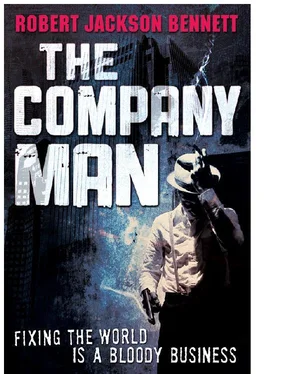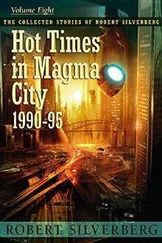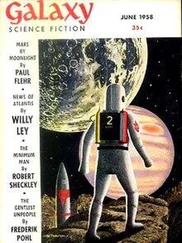Robert Bennett - The Company Man
Здесь есть возможность читать онлайн «Robert Bennett - The Company Man» весь текст электронной книги совершенно бесплатно (целиком полную версию без сокращений). В некоторых случаях можно слушать аудио, скачать через торрент в формате fb2 и присутствует краткое содержание. Жанр: Триллер, на английском языке. Описание произведения, (предисловие) а так же отзывы посетителей доступны на портале библиотеки ЛибКат.
- Название:The Company Man
- Автор:
- Жанр:
- Год:неизвестен
- ISBN:нет данных
- Рейтинг книги:3 / 5. Голосов: 1
-
Избранное:Добавить в избранное
- Отзывы:
-
Ваша оценка:
- 60
- 1
- 2
- 3
- 4
- 5
The Company Man: краткое содержание, описание и аннотация
Предлагаем к чтению аннотацию, описание, краткое содержание или предисловие (зависит от того, что написал сам автор книги «The Company Man»). Если вы не нашли необходимую информацию о книге — напишите в комментариях, мы постараемся отыскать её.
The Company Man — читать онлайн бесплатно полную книгу (весь текст) целиком
Ниже представлен текст книги, разбитый по страницам. Система сохранения места последней прочитанной страницы, позволяет с удобством читать онлайн бесплатно книгу «The Company Man», без необходимости каждый раз заново искать на чём Вы остановились. Поставьте закладку, и сможете в любой момент перейти на страницу, на которой закончили чтение.
Интервал:
Закладка:
Hayes didn’t like it, but he’d grown used to it. At least Brightly was kind enough to move himself, rather than making Hayes walk away. But still each time he met with Brightly he felt powerfully small, as though he were no more than a supplicating little creature forever trapped in Brightly’s shadow, and scrambling to keep up with the man’s heels as he steadily moved away.
As Hayes counted he looked to his right at the large iron lamp on the pedestal. It must have been the subject of whatever summit Brightly had held there. Unlike that of other lamps, its glass chimney was extremely small, no more than three inches tall, and it was nestled within columns of complicated-looking wires and plumbing. Strangely enough, the little chimney seemed to be holding some sort of clear fluid.
Hayes turned away from it as the minute ran out. He walked up to Brightly and saw that at the back of the auditorium where he stood there was another lantern on a pedestal, only this lantern was much smaller.
Hayes ignored it. “So what am I supposed to do?” he asked.
“Keep on doing what you’re doing,” said Brightly. “We’ll have everything planned out for you.”
“And Sam?”
“She’ll do what we plan for her as well. I don’t understand why there’s friction between you two, I understand she’s a lovely girl.”
Hayes paused. “She doesn’t know about me. And no one plans to tell her.”
Brightly shook his head. “She doesn’t need to know. It’d only trouble her. And besides, you’ve already turned her inside out, haven’t you? Read all the words written on the inside of her skull? What more could there be to protect?”
Hayes did not answer. Brightly turned to look at the little iron lamp on the pedestal and cocked an eyebrow, thinking. “Here,” he said. “Here, Hayes. Do you want to know why we’re having you do this? Why we’re stressing security as much as we are, and making you do all these tasks?”
“Because they’re sabotaging our factories, of course.”
“Yes, yes, but there’s more than that.”
Hayes just shrugged. “I just assumed it was for profit.”
“Well, yes,” said Brightly, eyes glittering. “I’d be a liar if I said it wasn’t. But there’s more. Much more. Here. I’ll show you.” He leaned over and hit a switch on the smaller lamp. It began humming very, very softly, a low hum that seemed to build but never grew truly loud. Once it was on he walked down to the stage, leaving Hayes behind once more.
“Is this part of your minutes of silence?” Hayes called to him, but Brightly did not answer. Instead he switched on the larger lamp and stood back.
“This may take a bit to warm up,” he called up from the stage. “They need time to recognize one another.”
“Who?” said Hayes, but again Brightly said nothing.
Eventually the lamp on the stage seemed to hit some threshold. Brightly smiled, walked to it, and called, “All right, now-watch.”
“I’m watching,” said Hayes.
“Are you watching closely, though?”
“Damn it, yes.”
Brightly adjusted some dials on its side. Then, glancing up at Hayes, he held one hand over the top of the lantern and pushed a button. Immediately the little glass chimney lit up, glowing with a soft blue light. At first Hayes was unimpressed, and he opened his mouth for a smart remark, but then he noticed the chimney in the lamp beside him had lit up as well. Brightly released whatever button he’d tapped, and the lights went out in both. Then he tapped it twice more. Both lamps flashed blue simultaneously. Then he began tapping out a little rhythm, each lamp flashing with the long and the short beats exactly.
“What are they?” said Hayes.
“They’re our newest prototype,” said Brightly. “And they’re going to revolutionize everything. And I do mean everything, Hayes.”
“Just these… these lamps that light up?”
“Not just light up. They light up instantaneously.”
Hayes stared at him blankly. “So?”
Brightly frowned and released the button. The lamps went dark. “They’re called the Siblings, or at least that’s what we’re calling them for now,” he began. “I rather like the name. Gives it a fraternal feel, like a family. Something the average man can appreciate. They’re crystals, Hayes, crystals that are paired together. Very, very small ones, just the size of molecules. But they’re remarkable, because if you split them up and put a minute charge through one of the crystals-just a very, very small one-then the other crystal immediately experiences symptoms of that same charge. Even if it’s not physically touching, which you can see as there’s one half floating in each lamp here. And they do it instantaneously. There’s no delay at all.”
Hayes looked at the lamp beside him. “None?”
“No,” said Brightly. He tapped out another rhythm on the lamp, and the other one flashed with it. “And usually everything has a delay. Radio waves. Electrical impulses. By God, even light has one,” he said, laughing. “But, as far as we can tell, these crystals don’t have any. They conduct the same tiny charge, no matter how far apart… to an extent.”
“An extent?”
“Yes,” said Brightly. “It’s mostly limited by proximity and duration. Depending on the machine that powers them, they can instantaneously conduct charges within a certain radius. With these it’s, say, half a mile. And, as you saw, it takes several seconds for them to recognize each other. They can only do it in pairs for now… But can you see what use this would have, Hayes?”
Hayes stared at the little lamp, thinking. “Communication,” he said.
Brightly beamed. “Exactly. If you make chains of them, paired across the world, you can conduct messages with almost no delay at all. But even better, if we can get them powered so they broadcast far enough, we won’t even need chains-you’d be able to communicate with the other side of the globe, immediately. People could pick up the phone and call France if they’d like and hear a voice right away.”
“And generals could communicate the movements of the enemy to their separated troops,” said Hayes.
Brightly’s smile thinned. “What a nasty idea.”
“Yet a lucrative one, isn’t it?”
“Possibly,” said Brightly. “The military possibilities of the Siblings have not gone unacknowledged. But we can’t decide what people do with the things we make, can we? Is that burden for us to bear?” Somehow his smile became even more placid.
“How many does the government have now?” asked Hayes flatly.
“Oh, none. These are prototypes, and crude ones at that. We’re experiencing some mathematical problems. Theoretically, they shouldn’t be limited at all, by either time or duration, and we still haven’t increased the range as much as we’d like… but we’re still figuring it out. We won’t be ready to go into production for a year, at least.”
“And what does that take?” asked Hayes.
“Well, that’s a bit more complicated,” said Brightly, turning off his lamp. “Apparently it involves some very hot temperatures, some high-speed collisions of some very small things, and some very tricky math. Of a sort.”
“Of a sort?”
“Yes. You see, they had to make up a new kind.”
“A new kind of what?”
“Of math,” said Brightly simply.
“Of math?”
“Oh, yes.”
“How did they do that?”
“Come now, Hayes,” said Brightly. “Surely you can’t have forgotten our patron saint?”
Hayes thought, then rolled his eyes. “Kulahee, again.”
“Yes. The man spent hours and hours toying with equations. Making numbers do things they’d never done before. It’s taken years to decode some of his scribbling, but we did it. And now we can stand on the shoulders of his giant figure, and move the very stars.”
Читать дальшеИнтервал:
Закладка:
Похожие книги на «The Company Man»
Представляем Вашему вниманию похожие книги на «The Company Man» списком для выбора. Мы отобрали схожую по названию и смыслу литературу в надежде предоставить читателям больше вариантов отыскать новые, интересные, ещё непрочитанные произведения.
Обсуждение, отзывы о книге «The Company Man» и просто собственные мнения читателей. Оставьте ваши комментарии, напишите, что Вы думаете о произведении, его смысле или главных героях. Укажите что конкретно понравилось, а что нет, и почему Вы так считаете.












